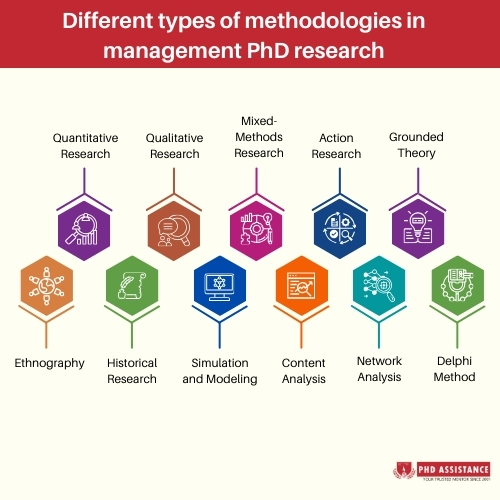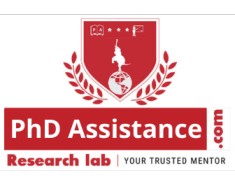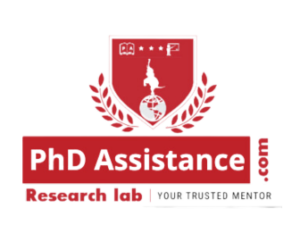What are the different types of methodologies in management PhD research?
The phrase “research methodology” refers to the kind of study you undertake for a paper or investigation, such as a thesis or dissertation. It is the process by which you collect your data in order to get a set of results that are trustworthy and directly relevant to the subject of your study. There are two sorts of research techniques that you will come across when writing, regardless of your area of expertise: qualitative research methodologies and quantitative research methodologies.
- Check our PhD research methodology examples to learn about how we review or edit an article for a research methodology.
Introduction
The methodology should not be viewed as a dry and uninteresting component that sometimes appears in an empirical research project as a type of required task that most researchers grudgingly and sporadically adopt from earlier work. The methodology section actually tells a lot about the nature of each research topic, placing it within a specific historical and contextual framework. Methodology is more than a collection of guidelines, policies, or tactics; it is an expression of the goals, objectives, and ideals of researchers. For a certain group that shares the same ontology and epistemology, it shows a worldview and what reality and knowledge creation imply. If theory is the mind behind a study, methodology is the body that contains the eyes, ears, and hands and a beating heart.

Common research methodologies
In management PhD research, various methodologies are employed to investigate and analyze different aspects of organizational behaviour, strategy, leadership, and other management-related topics. Here are some common research methodologies used in management PhD studies:
- Quantitative Research:
- Surveys and Questionnaires: Gathering numerical data through structured surveys or questionnaires to analyze trends, correlations, and patterns.
- Experiments: Conducting controlled experiments to test hypotheses and establish causal relationships.
- Qualitative Research:
- Interviews: Conducting in-depth interviews with individuals to gather rich, detailed insights into their experiences, perspectives, and behaviours.
- Focus Groups: Facilitate group discussions to explore attitudes, opinions, and perceptions among participants.
- Case Studies: In-depth analysis of specific cases or organizations to understand real-world phenomena and draw generalizable conclusions.
- Mixed-Methods Research:
- Combining Quantitative and Qualitative Approaches: Integrating both quantitative and qualitative data collection and analysis methods to provide a comprehensive understanding of the research problem.
- Action Research:
- Problem-Centered Inquiry: Collaboratively working with practitioners to address real-world problems and improve organizational practices. The researcher is often directly involved in the change process.
- Grounded Theory:
- Inductive Approach: Developing theories or conceptual frameworks based on the systematic analysis of data rather than starting with pre-existing theories.
- Ethnography:
- Participant Observation: Immersing oneself in the organizational context, observing and interacting with participants to gain an in-depth understanding of their behaviours and culture.
- Historical Research:
- Examining Past Events: Investigating historical records, documents, and events to understand the historical development of management practices, organizations, or industries.
- Simulation and Modeling:
- Computational Modeling: Using computer simulations to model and analyze complex management phenomena, such as organizational dynamics or decision-making processes.
- Content Analysis:
- Systematic Text Analysis: Analyzing written or verbal communication, such as documents, speeches, or media, to identify patterns, themes, and trends.
- Network Analysis:
- Examining Interconnections: Studying the relationships and interactions between individuals, groups, or organizations to understand social structures and communication patterns.
- Delphi Method:
- Expert Consensus: Iterative rounds of surveys or discussions with a panel of experts to reach a consensus on a particular topic.
The choice of methodology depends on the research questions, the nature of the phenomenon under investigation, and the researcher’s philosophical stance. Management PhD researchers often employ a combination of these methodologies to gain a holistic understanding of complex organizational phenomena.
What should you not write in your research’s methodology section?
- Steer clear of adding unrelated elements.
- Make sure the methodology part is clear and comprehensive. Your methodology section should not include details that do not help the readers comprehend the approaches you have selected.
- Superfluous descriptions of fundamental processes are examples of irrelevant information. Only when a basic method is unusual or foreign to the readers should it be described.
- Pay attention to any issues that may arise when collecting data. Describe how you dealt with issues rather than ignoring them.
Ethical Considerations
Researchers must follow ethical standards even while creating a methodology to ensure trust, responsibility, mutual respect, and fairness. According to Saunders, Lewis, and Thornhill (2003, p. 131), there are certain ethical issues that researchers must keep in mind, particularly while collecting and presenting study data:
- The persons involved’s right to privacy.
- Participation in the study must be voluntary, and participants must have the option to withdraw partially or fully from the procedure.
- All participants must first offer their consent.
- Maintaining the confidentiality of data submitted by people as well as the anonymity of identified participants.
- How participants react to the researchers’ data collection procedures.
Check out our study guide to learn more about How to Write a Research Methodology Chapter for PhD Dissertation.
Conclusion
In conclusion, the diverse methodologies available for management PhD research offer a spectrum of tools to investigate and comprehend the intricacies of organizational dynamics. Whether through quantitative surveys revealing numerical patterns, qualitative methods uncovering nuanced insights, or a fusion of both in mixed-methods approaches, researchers can tailor their strategies to the unique demands of their research questions. From immersive ethnography and historical data analyses to action research fostering practical change, the field’s breadth enables a comprehensive exploration of management phenomena. By judiciously selecting and integrating these methodologies, scholars contribute richly to the evolving understanding of organizational behaviour, leadership, and strategic management in the ever-changing landscape of the business world.
About PhD Assistance
PhD assistance focuses on writing research proposals for Ph.D. degrees, which are crucial for the application process and are used by many international universities to determine acceptance offers for DBA/Doctoral programs. They assist in framing these proposals according to standard guidelines and have assisted students from various countries, including the UK, USA, Netherlands, Australia, UAE, Dubai, Kenya, Nigeria, China, and Russia. They adhere strictly to university guidelines and have a plagiarism and tolerance policy, ensuring original papers are sent to clients.
References
- Machado, Carolina, and J. Paulo Davim, eds. “Research methodology in management and industrial engineering.” (2020).
- Osuagwu, Linus. “Research methods: Issues and research direction.” Business and Management Research3 (2020): 46-55.



